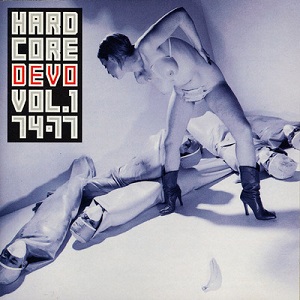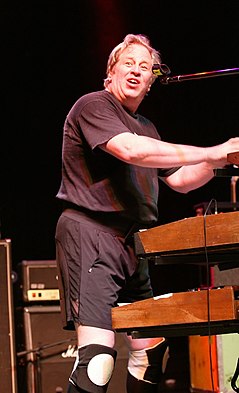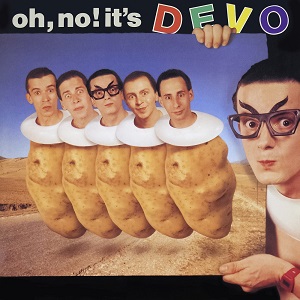
Oh, No! It's Devo is the fifth studio album by the American new wave band Devo. It was originally released in October 1982, on the labels Warner Bros. and Virgin. The album was recorded over a period of four months, between May and September 1982, at Cherokee Studios in Los Angeles. By the time of its release, Devo were a full-fledged synth-pop act, with guitar-based new wave sounds pushed more towards the background. Most of the music on Oh, No! It's Devo was created by electronic means, giving it a much different sound than the band's earlier albums, such as their 1978 debut Q: Are We Not Men? A: We Are Devo!, which relied more on guitars than synthesizers. This alienated some fans, despite the band stating since at least 1978 that their goal was to "de-emphasize" guitars. The album was produced by prominent producer Roy Thomas Baker, who had notably worked with, among others, Queen and The Cars.

New Traditionalists is the fourth studio album by the American new wave band Devo. It was originally released in August 1981, on the labels Warner Bros. and Virgin. The album was recorded over a period of four months between December 1980 and April 1981, at The Power Station, in Manhattan, New York City. The album's sound continued in the vein of their previous studio album Freedom of Choice, with synthesizers moved even further to the forefront and the guitars became more subdued. Some of the tracks featured drum machines for the first time on a Devo album. In addition, the lyrics are frequently dark and vitriolic. It features the minor hits "Through Being Cool" and "Beautiful World."

Duty Now for the Future is the second studio album by the American new wave band Devo. It was originally released in July 1979, on the labels Warner Bros. and Virgin. Produced by Ken Scott, the album was recorded between September 1978 and early 1979, at Chateau Recorders, in Hollywood, California. The majority of the songs on the album had been performed in Devo's live set as early as 1976.
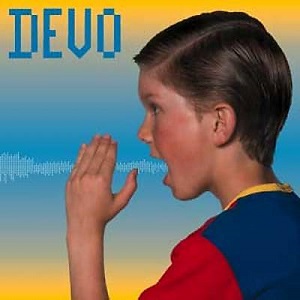
Shout is the sixth studio album by American new wave band Devo. It was originally released in October 1984, on the labels Warner Bros. and Virgin, two years after their previous album, Oh, No! It's Devo. The album was recorded over a period of ten months between July 1983 and Feb 1984, in sessions that took place at the Record Plant in Los Angeles, California. The album retained the synth-pop sound of their previous few records, with an extensive focus on the then-new Fairlight CMI Series IIx digital sampling synthesizer. Despite the popularity of synth-pop in 1984, the album was a critical and commercial failure, peaking at only No. 83 on the Billboard 200 and ultimately leading to Warner Bros. dropping the band from their label. Shout was the second Devo album in which co-founder and bass player Gerald Casale sang the majority of the lead vocals, which are usually performed by Mark Mothersbaugh.

Total Devo is the seventh studio album by the American new wave band Devo. It was originally released in May 1988, their first album on Enigma Records, four years after their previous album, Shout. The album was recorded between 1986 and 1988, with the basic tracks recorded at Devo studios, in Marina del Rey, and the additional tracks at Master Control, in Burbank, California.
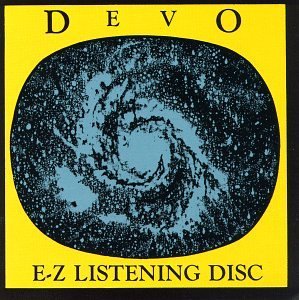
E-Z Listening Disc is a compilation album by the American new wave band Devo. It was originally released in 1987, on the label Rykodisc. The album is a compilation of all but one of the tracks from Devo's two E-Z Listening Muzak Cassettes, which had been available only through Club Devo in 1981 and 1984, respectively, consisting of instrumental versions of classic Devo songs performed in the style of easy listening Muzak or New-age music. The original E-Z Listening Muzak Cassette, Volume 2 contained two versions of "Shout," but only one appears on the CD due to time constraints. The "Hello Kitty" version, featuring synthesizers and an electric guitar, was included on the CD, whereas the other is a lounge music version featuring electronic piano, synth bass and drums. Additionally, the CD does not replicate the original cassette track-order.
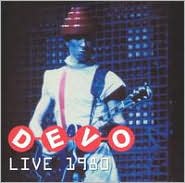
DEVO Live 1980 is a DualDisc release by pioneering new wave band Devo.

Smooth Noodle Maps is the eighth studio album by the American new wave band Devo. It was originally released in June 1990 and would be their last album released through Enigma. The album was recorded over a period of three months between October 1989 and January 1990, at Master Control Studios, in Burbank, California. Smooth Noodle Maps was Devo's last full-length studio album until the release of Something for Everybody in 2010, as well as the last Devo studio album to feature David Kendrick on drums.

DEV-O Live is a live EP by American new wave band Devo. It was recorded during the Freedom of Choice tour of 1980, at the Fox Warfield Theatre. Initially only six songs from the show were released on an EP in 1981, intended for airplay use. It featured the otherwise-unreleased "Freedom of Choice Theme Song" and a reworked version of "Be Stiff".
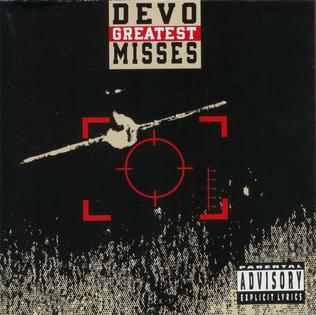
Greatest Misses is a collection of songs by Devo released in 1990. The album includes several photos from previous albums, and the second half of an article on the band by Howie Klein. The first half of this article appears in the accompanying material for Devo's Greatest Hits. Greatest Misses contains lesser-known tracks and alternate versions of tracks from other albums. It has a Parental Advisory label because of the song "Penetration in the Centerfold".

DEVO Live: The Mongoloid Years is a live album consisting of recordings from three early Devo performances.

Pioneers Who Got Scalped: The Anthology is a compilation album by the American new wave band Devo, released in 2000 by Rhino Records. 17 of the 50 tracks were previously unreleased on CD, including single B-sides, outtakes, remixes, soundtrack songs and spoken word material. The band recorded the long-time concert favorite "The Words Get Stuck in My Throat" in the studio for the first time, specifically for inclusion on this compilation.

B Stiff is the first EP by new wave musicians Devo, released in 1977. It is a compilation of the three 7-inch singles released by the band on Stiff Records in the UK. The cover was created by graphic designer Barney Bubbles and photographer Brian Griffin.

Theme From Doctor Detroit is an EP by the American new wave band Devo, released in 1983 on MCA Records. It includes the two songs from the Doctor Detroit movie soundtrack recorded by the band, plus a dance mix of the title theme. A music video of the song, containing scenes from the movie as well as footage of the band, was released on the We're All Devo home video in 1984 and also appears on the 2014 re-release of the Complete Truth About De-Evolution video collection.

Hardcore Devo Live! is a concert film and live album, showcasing the June 28th, 2014 performance at the Fox Theatre in Oakland, California of Devo's 2014 "Hardcore Devo Live" tour. The tour commemorates the 40th anniversary of the band, and pays tribute to former band member, Bob Casale who died February 17th, 2014. The set list exclusively focuses on songs written between 1974 and 1977, before Devo had a recording contract. Many of the songs had not been performed by the band since 1977. While the music is largely performed as a quartet, the band is augmented, off-stage, by Brian Applegate on additional keyboards and bass guitar. The tour was also the last tour to feature Josh Freese on drums.





